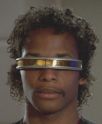|
A GIANT PARSNIP posted:Our true destiny is to break out of our simulation and kill our creator. It already happened but the simulation was left on, and slowly breaks down over time.
|
|
|
|

|
| # ? Jun 3, 2024 00:57 |
|
Just to get in one last word on this - basically, there's two main questions to ask for your thought experiment: 1) Does it raise some kind of testable hypothesis that could ever be proven wrong? and 2) Does it have any moral implications that might affect how a person or society might organize their activities or decisions? If one or the other, or both are true, then it's worth contemplating for a while. If neither are true, then it's just a spooky story to feel creeped out about. An example of a spooky, unfalsifiable thought experiment: Roko's Basilisk. An example of a legitimate thought experiment: Speculating about the physical capabilities of a highly advanced technological civilization, figuring out what that would mean in terms of observable properties, then doing astronomy to see if anything fits the prediction. DrSunshine fucked around with this message at 05:30 on Aug 9, 2020 |
|
|
|
DrSunshine posted:Just to get in one last word on this - basically, there's two main questions to ask for your thought experiment: 1) Does it raise some kind of testable hypothesis that could ever be proven wrong? and 2) Does it have any moral implications that might affect how a person or society might organize their activities or decisions? If one or the other, or both are true, then it's worth contemplating for a while. If neither are true, then it's just a spooky story to feel creeped out about. To be fair, nerd spooky ghost stories are also fun  and we should always reserve a little bit of room in our grimoirs for some fun. and we should always reserve a little bit of room in our grimoirs for some fun.
|
|
|
|
Raenir Salazar posted:To be fair, nerd spooky ghost stories are also fun Is this the "Space, the Fun Frontier" thread? I did not see that in the title. Nihilism and existential despair at the nothingness that fills the cosmos ONLY.
|
|
|
|
Rustybear posted:Dead galaxies are often metal poor (the two may be causally linked but its an unsolved problem); there's good reason to think that dead or dying galaxies are inhospitable to (what we might recognise as) civilisations. All true, but I postulate that the Drake equation as it is, is still fatally flawed even for looking after Human-like civilizations. Essentially, the Drake equation tells us that with no observable star birth, the number of potential alien civilizations is zero. Does the equation care what stars are observable in that dead stretch of space? No. Does it now or care if there has been lots of star birth in the past, which then later stopped or even just paused for a couple million years? No. That one variable just shunts down the entire following equation to zero, regardless of how much sense it makes. Now, obviously a region with no star birth is probably not very good or even very inhospitable, but looking at hundreds of billions of suns and arguing the chance is zero, without even bothering to look, is nonsense. The core problem, as far as I can tell, is with observation: The Drake equation assumes there always will be at least a little bit of star birth in an observed bit of space, as observations like from the Hubble telescope confirmed. The equation absolutely cannot deal with the idea of zero star birth. Now, obviously the rate of star birth is important to decide how hospitable a place can be, but since we don't have time machines, we can't possible know if a place that is dead now hasn't had tons of star births going on 1 billion years in the past, or even further. In its current form, the Drake equation makes us look at a stretch of space that for all we know, could hold hundreds of civilizations, and claims that there are always zero. That is a problem. My suggestion would be to replace the variable R with something else, which takes star birth ratios more indirectly into account, to avoid edge cases where the equation only gives nonsense results. A possibility would be to compare star mass in a given volume to each other, with weights depending on how good we think a certain star is for creating life (sun-like=awesome, blue giant=bloody awful, and so on) and then create a multiplicator based on how good or bad the observed stars are. This way, the total star birth ratio would be taken into account, not just the one we can observe in this minute, exactly. With R as it is, the Drake equation only really works if you want to know the chance of a given volume of space developing intelligent life. The equation can't make a guess at intelligent life developing in the past, because for that it would need to take a closer look at what stars there actually are. I mean, this entire exercise is mostly theoretical and about edge cases, as the equation only begins truly failing if there really is a disconnect between the stars we can observe and the observed rate of star formation, e.g. a volume of space with lots of Sun-like stars but very low star birth rates. Still, I think if we go through all this trouble to blindly guess something this important, we should make sure there are no holes in our logic. Libluini fucked around with this message at 09:32 on Aug 9, 2020 |
|
|
|
Libluini posted:All true, but I postulate that the Drake equation as it is, is still fatally flawed even for looking after Human-like civilizations. Essentially, the Drake equation tells us that with no observable star birth, the number of potential alien civilizations is zero. Does the equation care what stars are observable in that dead stretch of space? No. Does it now or care if there has been lots of star birth in the past, which then later stopped or even just paused for a couple million years? No. That one variable just shunts down the entire following equation to zero, regardless of how much sense it makes. It’s honestly just a tool to get people thinking creatively about how you might conceptualize civilization as an astronomical phenomenon. It’s not meant to be particularly plausible, but it is meant to get you thinking critically about the variables, if there should be more variables, etc. So you’re doing something constructive here.
|
|
|
|
What if you're a brain in a vat in a simulation created by a boltzman brain and also pantheism? Let's discuss.
|
|
|
|
Libluini posted:All true, but I postulate that the Drake equation as it is, is still fatally flawed even for looking after Human-like civilizations. Essentially, the Drake equation tells us that with no observable star birth, the number of potential alien civilizations is zero. Does the equation care what stars are observable in that dead stretch of space? No. Does it now or care if there has been lots of star birth in the past, which then later stopped or even just paused for a couple million years? No. That one variable just shunts down the entire following equation to zero, regardless of how much sense it makes. This makes a lot of sense, and I think I agree with you. It would also seem to miss the fact that civilizations might also exist in the star systems between the galaxies as well, where star formation should be zero, and civilizations that could appear around things that aren't stars. There could be civilizations that also exist around bodies that we can barely observe, like brown dwarfs, or even on wandering planets that orbit no stars.
|
|
|
|
DrSunshine posted:This makes a lot of sense, and I think I agree with you. It would also seem to miss the fact that civilizations might also exist in the star systems between the galaxies as well, where star formation should be zero, and civilizations that could appear around things that aren't stars. There could be civilizations that also exist around bodies that we can barely observe, like brown dwarfs, or even on wandering planets that orbit no stars. I think people are overthinking. The first term isn't some claim about complex interplay between life and star creation. It's literally just a way to write "how many stars are there" before the second term of "how many planets are there"
|
|
|
|
I just don’t think the Drake equation is important enough to argue about whether one variable being changed matters a lot. It’s a thought experiment designed to try and loosely quantify a number of civilizations to pose other, more important questions.
|
|
|
|
Isn't the Fermi paradox a thought experiment explaining why another thought experiment doesn't reflect reality? And fully 3 of the values in the Drake equation are based on a sample size of 1. Meanwhile after all this navel gazing we still don't have flying cars
|
|
|
|
Flying cars are technically feasible but also a real bad idea, as it turns out.
|
|
|
|
Maybe we can put nuclear reactors in the flying cars so we never have to refuel!
|
|
|
|
|
The average driver should not be allowed anywhere near anything that can travel in 3 dimensions.
|
|
|
|
Neo_Crimson posted:The average driver should not be allowed anywhere near anything that can travel in 3 dimensions. Having done a couple flying lessons in a microlight I totally agree with you. Flying is not especially hard, navigating & keeping good situational awareness is loving hard.. at least, that's what I find.
|
|
|
|
Wouldn't we have to know the rules of the universe above ours to know if boltzman brains are inevitable there? If we accept that they are inevitable in our universe that doesn't mean that we could be in one.
|
|
|
|
I found the stuff about the impossibility of intergalactic travel posted itt really interesting. Is there any more of that? Same with any stuff about the speed of light, even an interstellar empire would be completely hosed temporally. It did make me think a good way to terraform a planet would be to send a probe ahead to spray primordial ooze at any habitable planet in the system then in the millions or billions of years it takes to travel to the system you get some nice ferns and an atmosphere and oh poo poo ape infestation! Maybe not for travel to (since you probably won't be travelling to a place it takes 2 billion years to reach) , but automated drones shooting primordial spunk at likely planets would be something I'd hook up if I was a space faring civilisation and was feeling charitable.
|
|
|
|
I mean, you’d have to change the atmosphere and atmospheric pressure of pretty much every planet that wasn’t the one you evolved on in addition to seeding it with things you could eat or build with.
|
|
|
|
Communist Thoughts posted:Same with any stuff about the speed of light, I can only speak as a layman, but as far as I understand. Space & time are both facets of the same thing. There is a limit called C (speed of light), this is determined by your speed though actual 'physical' space & time. I don't pretend to understand it but to my monkey brain, it means the faster you travel though 'space', the slower you will travel though 'time' because the total can only be C.
|
|
|
|
Communist Thoughts posted:
http://clarkesworldmagazine.com/schwitzgebel_04_19/ A good sci-fi story about a space probe sent to slowly terraform a planet that way. With the main gimmick being that it's written by a neurobiologist and the robot is extremely non-sentient but is a cute robot so it's hard to accept that.
|
|
|
|
Boltzman brain chat is weird and can be used to prove weird things. For example, time travel back in time must be impossible. Otherwise over all that infinite time you would also get an infinite number of time machines set to travel to this exact moment in time. The fact our universe isn't a solid lump of time machines suggests that it's either impossible, or these super unlikely things won't inevitably happen even given enough time.
|
|
|
|
Neo_Crimson posted:The average driver should not be allowed anywhere near anything that can travel in 3 dimensions. People shouldn't be allowed to drive at all.
|
|
|
|
Senor Tron posted:Boltzman brain chat is weird and can be used to prove weird things. Comedy option, all matter that had time travelled is instantly shadow banned from the universe into dark matter/energy.
|
|
|
|
Could a super intelligent species find FTL travel, and then use this technology to bend time / space in a way that makes the technology impossible for future species?
|
|
|
|
WAR CRIME GIGOLO posted:Could a super intelligent species find FTL travel, and then use this technology to bend time / space in a way that makes the technology impossible for future species? IIRC this is what the Time Lords did in the lore for Doctor Who.
|
|
|
|
If some entity were to dip its arm into the pool that is our universe to turn some dials, afterwards that arm would be left dripping with physics. By that I mean, we'd see evidence of that sort of manipulation written across the stars. We see no such evidence, in fact what we see is entirely consistent with the Einstein Field equations acting on an FLRW metric completely undisturbed from about 10^-12 seconds after the Big Bang event, which is how far our current theories can take us. Now, I suppose one could speculate about what may have placed our universe in such a low entropy state to begin with, but as they say, that and $1.50 might buy you a candy bar. Speculation about things we have no evidence for and have literally no known way of understanding is the stuff of great stories, but when it comes to a description of reality it is profoundly meaningless.
|
|
|
|
Senor Tron posted:Boltzman brain chat is weird and can be used to prove weird things. You don't even need the Boltzman brain for that kind of mind-bending reasoning. Here's a simple one: Assuming that: a) There is a finite number of possible configuration the observable universe can possibly be in at a given point in time. (which seems to be the case as far as we can tell per information entropy theory) b) The universe is flat and infinite. (which appears to be the case as far as we can tell) Then necessarily, there HAS to be an infinite number of copies of you in existence.
|
|
|
|
https://newrepublic.com/article/158823/tom-delonge-warped-ufo-aliensl New Republic's Matt Farwell talks to Elizondo, DeLonge, and Justice about the recent UFO hullabaloo
|
|
|
|
Aramis posted:You don't even need the Boltzman brain for that kind of mind-bending reasoning. Here's a simple one: It’s possible that the universe is curved and thus finite, but so gradually that the curve is not visible from the vantage point of our light cone/particle horizon. It just looks flat to us the way a big field on the Earth looks flat when you’re on the edge of it.
|
|
|
PawParole posted:https://newrepublic.com/article/158823/tom-delonge-warped-ufo-aliensl quote:He told me about “five observables” the Pentagon used to decide if strange aerial phenomenon rated the X-Files treatment. Have you ever seen an aircraft display: 1) sudden and instantaneous acceleration, or 2) hypersonic velocities without acoustic or heat signatures? Is it 3) difficult to observe through multiple sensors—eyeball, infrared, radar—and can it 4) travel seamlessly through air and sea and outer space, while 5) showing positive lift despite a lack of aerodynamic surfaces? If so, and you report it, someone from Elizondo’s old office may come and talk to you. hosed up if true
|
|
|
|
|
ashpanash posted:If some entity were to dip its arm into the pool that is our universe to turn some dials, afterwards that arm would be left dripping with physics. How would we know? I agree it's a meaningless thing, but maybe something like quantum uncertainty or there being a slow speed limit to the universe is the result of such meddling, and since we only have one universe to observe we just write those things off as being part of its fundamental laws.
|
|
|
|
Libluini posted:Drake equation
|
|
|
|
DrSunshine posted:
Interesting reading. There are greater minds than mine in this thread so please tell me if I'm completely wrong. But you can't time travel so Roko's Basilisk is completely falsifiable unless it has simulated an entire universe for the sole purpose of torturing its simulations. The idea of people actually being "scared" in some way of this thought experiment is loving stupid
|
|
|
|
Illuminti posted:Interesting reading. I guess it's falsifiable in the trivial sense that you could just wait and see if it comes about, but it's dumb and stupid in the practical sense since that doesn't advance current knowledge in any way. Iirc, it was the brain geniuses at lesswrong.com that wound up pissing themselves in fear over it to the extent that it had to get banned from discussion.
|
|
|
|
Bug Squash posted:
Yeah that was in the article. Strange people.
|
|
|
|
This page discusses some arguments against the Basilisk idea: https://rationalwiki.org/wiki/Roko%27s_basilisk#So_you.27re_worrying_about_the_Basilisk It depends on a whole lot of shaky assumptions about AI and simulation (e.g. that the simulation "is" you), and also the idea that a human can model the thought processes of an artificial super intelligence from the future (which just so happens to adhere to a very specific set of theories that were circulating on LessWrong).
|
|
|
|
Aramis posted:You don't even need the Boltzman brain for that kind of mind-bending reasoning. Here's a simple one: Sorry perhaps I've missed the point here but an infinite set isn't necessarily a universal set so you've snuck in an unwarranted 'necessary' on your conclusion. The universe can be infinite without ever reaching some finite configurations, just in the same way the set of odd integers is infinite without ever containing the number 2. Also without getting too arcane, your first premise seems to force the set of 'things which exist' to be countable; while the set of 'things which do not exist' remains uncountable and therefore much much larger. So it's not even that probable.
|
|
|
|
Senor Tron posted:Boltzman brain chat is weird and can be used to prove weird things. Ok weird hangup I know, but no it doesn't, infinite doesn't mean universal. Something being infinite doesn't mean it must contain anything and everything you can dream of. 'Infinite' just means that a counting operation performed on this set would never complete in finite (or for some cases infinite) time. Lots of infinite sets are very small relatively speaking so it's hard to even work up probabilistic arguments. Rustybear fucked around with this message at 10:13 on Aug 11, 2020 |
|
|
|
Nah I have it on good authority that the universe is infinite so planets made of ice cream where dogs talk to their human pets MUST exist
|
|
|
|

|
| # ? Jun 3, 2024 00:57 |
|
Communist Thoughts posted:I found the stuff about the impossibility of intergalactic travel posted itt really interesting. Is there any more of that? I think we talked about this in another thread but yes an intergalactic empire would have substantial issues with causality insofar as any three sufficiently distant locations A, B and C would all be moving relative to each other so causality between A and B could be in in sequence 1,2,3 relative to A or B but could be 2,1,3 relative to C. It's worth noting that special relativity does not cease to exist on earth-scale distances it's just the effects are not intuitively noticeable to our slow brains. Time dilation is significant enough to be observable on a human scale though, take a long haul flight and you will travel in time (relative to the ground) 'gaining' milliseconds as you increase your distance from Earth's gravity well. An organised galactic civilisation would either have to think in relativistic terms natively or think at 'galactic speeds' (just as humans think at 'earth speeds') ie. much much slower.
|
|
|



































